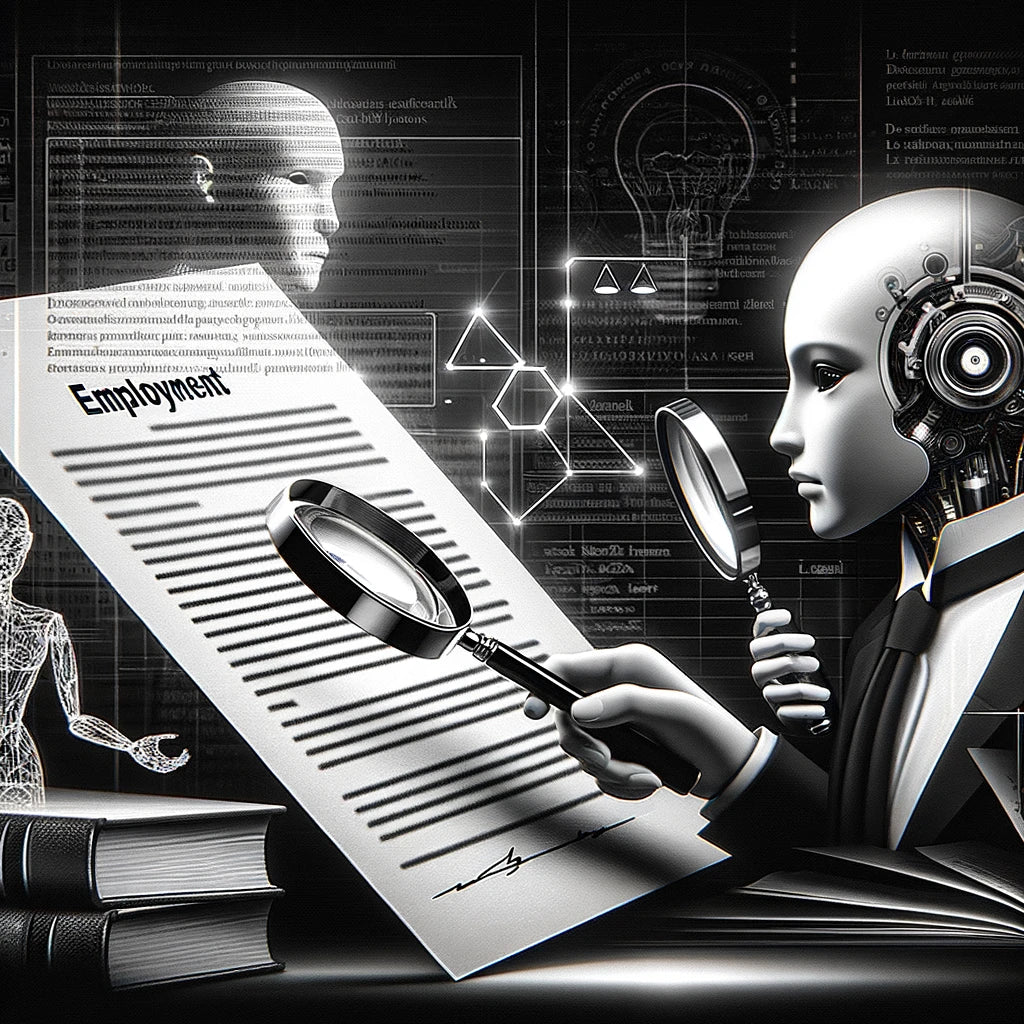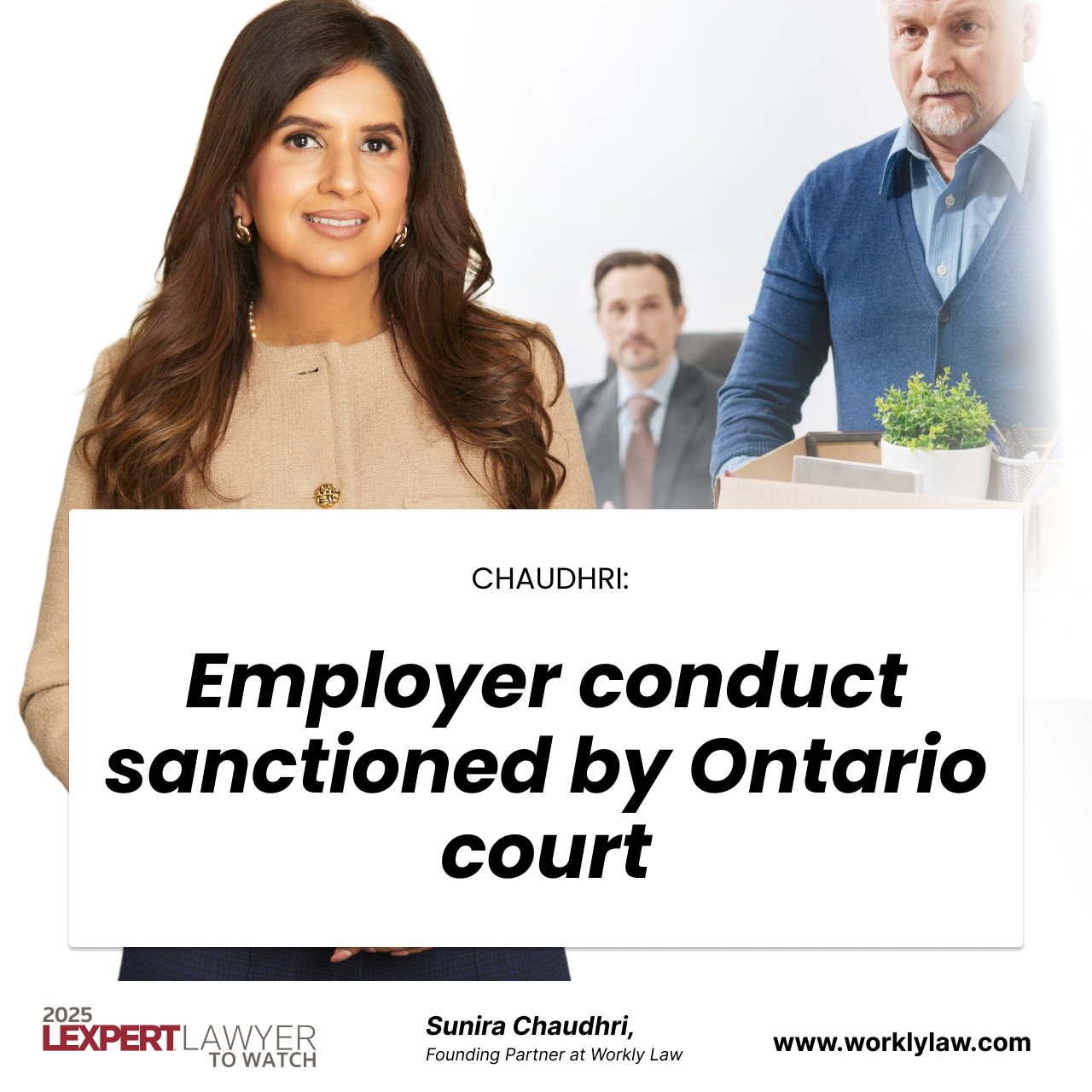Sunira Chaudhri
CHAUDHRI: Navigating the Use of AI in Employee Contracts: A Guide for Employers

In the rapidly evolving landscape of the workplace, artificial intelligence (AI) tools like ChatGPT are becoming increasingly integral. These technologies offer remarkable efficiencies in drafting documents, including employee contracts. However, their use comes with a set of considerations and risks that employers must navigate carefully. To ensure the legality, fairness, and clarity of these contracts, it's imperative that employers consult with employment lawyers. Here's why:
Understanding the Legal Nuances
Employee contracts are binding legal documents that establish the rights and responsibilities of both the employer and the employee. They cover crucial aspects such as job duties, compensation, confidentiality agreements, and termination conditions. Given the complexity of employment law, which varies significantly across jurisdictions, AI-generated contracts may not always account for specific legal nuances or recent legislative changes. An employment lawyer can ensure that contracts are compliant with local, state, and federal laws, thus protecting both parties from potential legal disputes.
Tailoring Contracts to Individual Circumstances
One of the hallmarks of AI like ChatGPT is its ability to process and generate large amounts of text quickly. However, the effectiveness of AI in creating personalized documents can be limited. Each employment relationship has its unique aspects that generic contracts may not fully capture. Employment lawyers can provide the necessary customization, ensuring that contracts address the specific circumstances and needs of both the employer and the employee. This includes drafting non-compete clauses, confidentiality agreements, and other provisions that protect the employer's interests without infringing on the rights of the employee.
Mitigating Bias and Ensuring Fairness
AI tools are only as unbiased as the data they've been trained on. There's a risk that these tools might inadvertently perpetuate biases present in their training data, leading to clauses that could be considered unfair or discriminatory. Employment lawyers can review contracts generated by AI to identify and correct any biased or potentially discriminatory language, ensuring that the contracts promote fairness and equality in the workplace.
Adapting to Technological and Legal Developments
The legal landscape and technological capabilities are constantly evolving. What may be a cutting-edge and legally sound practice today might become outdated or non-compliant tomorrow. Employment lawyers stay abreast of these changes and can advise on how to best use AI tools like ChatGPT in drafting employee contracts. They can provide guidance on incorporating new legal requirements and leveraging advancements in AI responsibly and ethically.
Conclusion
While AI tools like ChatGPT offer promising efficiencies in drafting employee contracts, their use must be approached with caution. The expertise of employment lawyers is invaluable in ensuring that these contracts are legally compliant, tailored to individual circumstances, unbiased, and up-to-date with the latest legal and technological developments. Employers should view these tools as a complement to, rather than a replacement for, professional legal advice. By doing so, they can harness the benefits of AI while safeguarding the rights and interests of their employees and themselves.
Related articles
POWER: Ontario Minimum Wage Increase Effective October 1, 2025
Effective October 1, 2025, Ontario’s general minimum wage will increase to $17.60 per hour (up from $17.20). This annual adjustment is tied to the Consumer Price Index and affects nearly all employees covered by the Employment Standards Act, 2000 (ESA). For employers, this increase is a timely reminder to review pay practices, budgets, and compliance processes before the fall.
CHAUDHRI: Employer conduct sanctioned by Ontario court
Courts do not want employees to be 'starved' by employers in an effort to have them accept lower packages on termination


